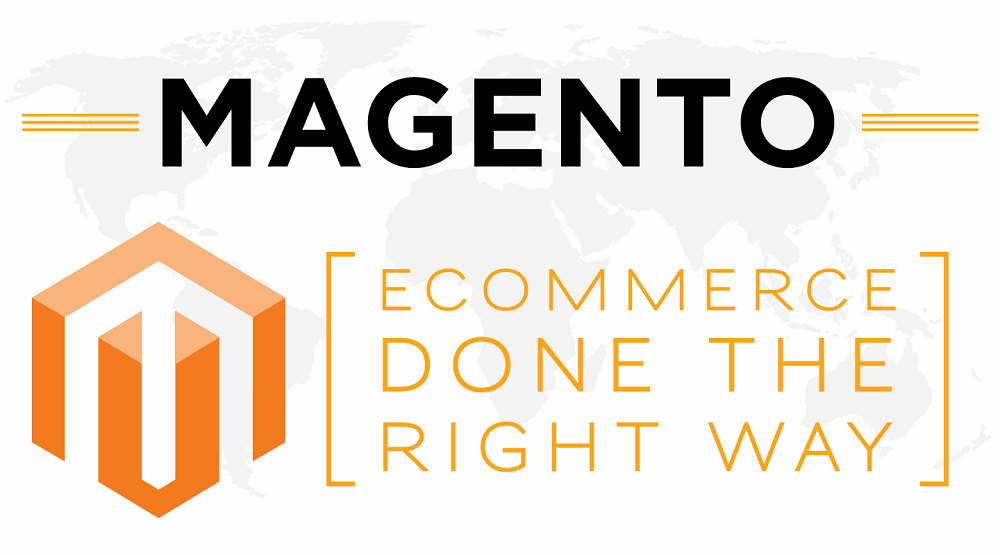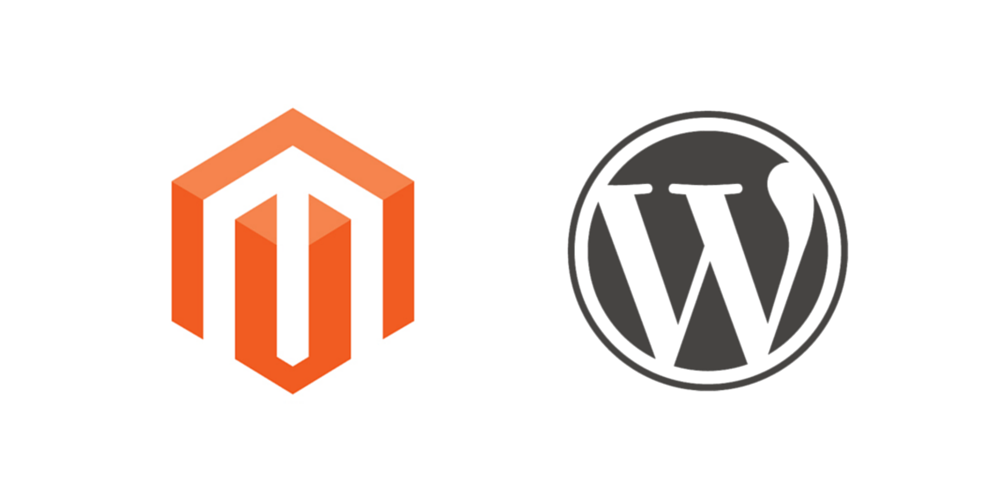WordPress vs. Magento: Which One is Best for Your eCommerce Project?
- What is Magento eCommerce?
- What is WordPress CMS?
- WordPress vs. Magento: Choose the Most Suitable Platform
- Wrap Up
Establishing an online store may sometimes cost an arm and a leg. But what if we say that you can get it at almost no cost? With two outstanding open-source platforms, it gets real. WordPress and Magento options are available for free and allow even a small shop to manage the store, consumers, and orders using eCommerce CMS. You’ll only have to pay for a domain name, hosting services, and additional plugins and extensions needed for setting up a full-fledged eCommerce website.

In this copy, we plan to consider the WordPress vs. Magento question and help you make the final decision if you’re still hesitant. But, before jumping to a side-by-side comparison between these two platforms, let us begin with their definition, core features, pros, and cons.
What is Magento eCommerce?
Magento is an open-source, full-fledged eCommerce platform. It has been created to provide online businessmen with the versatile shopping cart system along with the ability to manage the appearance, content, and functionality of their online store. Inside the pack, one can find marketing, SEO, and catalog-management tools.
Magento eCommerce boasts an extensive and helpful community, hence it becomes suitable for non-developers as well. Although, it is better to have at least minimal technical knowledge to successfully set up Magento online stores with all the needed functions and tools.

Core Features
- Support for an infinite number of products
- A collection of custom themes and layouts
- Efficient APIs connecting with any third-party option
- User-friendly admin interface and tools for creating products
Magento Advantages
- Magento is SEO-friendly. It allows applying changes to the URL of any of its pages, altering their meta description, sitemap, and other components.
- Magento boasts a great number of features. It ensures multiple locations, languages, pricing, and currencies, and even allows managing multiple stores.
- Magento has an extensive community of users. It ensures prompt help and encourages the creation of more and more plugins and add-ons.
- Magento is scalable. It can handle about 500,000 products and thousands of transactions per hour. So, there’s no need to worry about scalability as the business grows. Magento will easily cope with the increasing number of products and sales.
- Magento is mobile-friendly. And it gives a chance to reach the prospects that use mobile phones for online shopping.
Magento Drawbacks
- Magento is not free. Its Enterprise version costs over $15,000 while the Premium Enterprise plan is over $50,000 a year.
- Magento can’t boast many genuine developers. One should have extensive skills and experience to craft a Magento store. And even though you’ve successfully found a professional, the price tag of the services is unlikely to be pleasant.
- Magento Community version has flexible architecture. The latter makes setup complicated and time-consuming resulting in slow loading of the store.
- Magento demands to host the site in hostings. Also, configuration and operation should be done in the server that you or a developer are good with.
- Magento is costly in terms of product support. Unlike WordPress, Magento specialists charge a lot. Also, the support forum is lacks monitoring, hence it is overflowing with spam. Because of this, it may become a real quest to find assistance at the forum.

What is WordPress CMS?
WordPress is a free open-source content management system. At last count, WordPress powers over one-third of the web or 34% of all websites on the internet. Some of the largest world-known entities using WordPress include:
- Whitehouse.gov
- Microsoft
- The Rolling Stones
- Mashable
- TechCrunch
- New York Times
- and many more
Because WordPress is licensed under GPLv2, anyone can use it for building a website for free and customize it without even knowing the programming aspects. That being said, WordPress becomes accessible for non-techies as well.
Developed primarily as a tool for blogging it is now dominant in other spheres like business, corporate, and even eCommerce. While being compatible with the most popular WooCommerce shop plugins, WordPress lets its users create an online store right in their existing websites based on WP.
Core Features
- Support for an infinite number of products
- A wide assortment of extensions and plugins
- Ability to choose any payment method for the store
- Multiple free and premium themes
WordPress Advantages
- WordPress is user-friendly. Building content and customizing pages is much easier in comparison with the other platforms. It is not mandatory that you be a developer to handle website building, although basic technical knowledge is recommended.
- WordPress offers an endless number of plugins. Over 50,000 free and paid add-ons and plugins are disposable for users to improve the functionality of the WordPress websites.
- WordPress is SEO-friendly. Aside from meta tags and keywords associated with a better ranking, WordPress offers numerous SEO plugins which allow optimizing content.
- WordPress is responsive. When it comes to website building, one may choose a pre-designed theme which is already responsive. Mobile-friendly design is doubtlessly important for impressive user experience.
- WordPress supports eCommerce. It is compatible with the WooCommerce package which plays a significant role in brand awareness. Efficiently optimized content (which is possible with WordPress) will help to drive more traffic to the online store and convert leads into prospective customers.
WordPress Drawbacks
- WordPress requires regular updates. This may cause some inconvenience because you will have to update core WordPress files and themes at least twice a month if not more often. If any issues occur, you may need to restore to a previous WP state.
- WordPress is vulnerable. Because it is an open-source and popular platform, it becomes attractive for black hat hackers. To mitigate the risk of hacker attacks, make sure to get third-party plugins and themes from reliable developers only.
- WordPress may sometimes experience setbacks with loading speed. Because some of the themes come with a lot of useless generic code, this may lead to slow loading. Lacking WordPress experience makes it challenging to understand what code is needed and what is not.
- WordPress requires advanced customization. As previously mentioned, regular updates may result in certain issues like broken functionality on the site. And if you have no prior experience designing WordPress, this can lead you to a dead end. At its worst, you’ll have to hire an expert and invest a lot into customization.
- WordPress is not completely free. The user will have to pay for a domain name and hosting service as well as third-party plugins and custom-made themes and templates.

WordPress vs. Magento: Choose the Most Suitable Platform
After considering the most important details about WordPress and Magento, it’s high time to proceed with a side-by-side comparison in terms of security, SEO, blogging and eCommerce functionality, and extensions.

Security
When it comes to setting up an online store, the significance of security cannot be underestimated. While working with customers, you have to ensure protections for their personal information as well as payment details.
Because Magento is a dedicated eCommerce platform and doesn’t have many additional extensions, it takes the leading position in terms of security. Although WordPress ensures data protection of its users, the security weak point is connected with plugins and themes the user has to leverage for establishing an eCommerce project. Another question is how well one can manage server security when choosing a self-hosted system.
Robust security is one more reason why you’d better come with a managed hosting solution, so one point goes to the Magento eCommerce platform.
SEO
As far as these platforms coming with reasonable SEO features, they both still need some further improvements.
For WordPress, it is important to opt for a theme built with the latest web design technologies and clean code. Installing an extra plugin like Yoast SEO will help to manage custom page titles and meta descriptions. Because Magento is not developed with content marketing in mind, one may need to take extra efforts to make the site visible to search engines.
In terms of SEO, WP is more intuitive when it comes to building textual content, so another point goes to WordPress.
Blog Functionality
Once again, Magento is an eCommerce platform and is not intended for blogging, whereas WordPress has its origin as a blog creating system. Nevertheless, there are a few custom extensions for Magento that allow integrating a blog into a web store. WordPress, in turn, sometimes has a blog included by default. In any other case, the user will also have to leverage a third-party plugin to embed blog functionality to the eCommerce site.
One point goes to each platform.
eCommerce Solutions
Magento is an excellent full-fledged eCommerce solution. Its outstanding scalability makes it perfect for existing companies developing an eCommerce project. Apart from that, Magento ensures handy catalog management, an intelligent reporting system, and convenient pricing policies to set for the online shop.
To build an eCommerce site on WordPress, one should install the WooCommerce plugin and proceed with further customization. Even though it is an extension, it is still found to be easier to use compared to Magento which makes it perfect for a novice jumping into eCommerce. Speaking of the other benefits, WooCommerce allows for selling a wide range of goods including digital products, provides tools for a marketing campaign, and instruments for analytics. However, users may find that WooCommerce still lacks many Magento features.
Only for the reason that Magento is a solid eCommerce platform, we’ve decided to give it this point.
Extensions
Both platforms can boast an array of extensions. However, Magento extensions mostly focus on eCommerce which makes it less flexible in comparison with WordPress. The latter platform, on the other hand, provides a huge number of extensions which allows building websites of all kinds from a simple personal blog to a powerful eCommerce site.
For better flexibility, the last point goes to WordPress.
| Features | Magento | WordPress |
| Security | Magento is a dedicated eCommerce platform with robust security. It comes already set with everything needed for selling products online, so the user doesn’t have to take a risk with optional extensions. | Because WordPress is one of the most popular platforms on the market, it often becomes a target of black hat hackers. Aside from that, third-party eCommerce plugins could be carrying malicious code, so it’s mandatory to get them from reliable developers only. |
| SEO | If built well and properly maintained, Magento sites are visible to search engines. | Same applied to WordPress sites. It is significant to properly care for SEO. |
| Blog Functionality | There are a few blog extensions for blog integration in Magento. | WordPress may come with a blog option by default or needs the corresponding extensions. |
| eCommerce Solutions | Magento is a dedicated eCommerce platform meant to help you create a web store to sell thousands of products with ease. | WordPress started as a blogging platform which now is flexible enough to support eCommerce. With the optional WooCommerce plugin, the user can establish a web store to publish content online alongside the sale of dozens of products. |
| Extensions | Allows purchasing the extensions on the marketplace for an additional fee and adding extra features to Magento plan. | Offers a great number of free and paid solutions from search tools to payment and shipping improvements. |
Wrap Up
As you might have noticed, both platforms scored the same number of points which in the end means only that there is no better or worse option. It all depends on the user’s goals and challenges raised while building an eCommerce website. Magento may be suitable for more advanced users, whereas WordPress is perfect for both beginners and experts. Nevertheless, before opting for a platform to go with, make sure to decide what you want to get out of it in the end.
Read Also
Webflow vs. WordPress. Choose Your Own Winner and Bring an Idea to Life
Magento vs. Prestashop: What eCommerce CMS is The Best For Your Store?
F2 Free Magento Theme from TemplateMonster Compared to Luma
WooCommerce Vs. Magento: eCommerce Platform Features Review
Don’t miss out these all-time favourites
- The best hosting for a WordPress website. Tap our link to get the best price on the market with 82% off. If HostPapa didn’t impress you check out other alternatives.
- Monthly SEO service and On-Page SEO - to increase your website organic traffic.
- Website Installation service - to get your template up and running within just 6 hours without hassle. No minute is wasted and the work is going.
- ONE Membership - to download unlimited number of WordPress themes, plugins, ppt and other products within one license. Since bigger is always better.
Get more to your email
Subscribe to our newsletter and access exclusive content and offers available only to MonsterPost subscribers.


Leave a Reply
You must be logged in to post a comment.